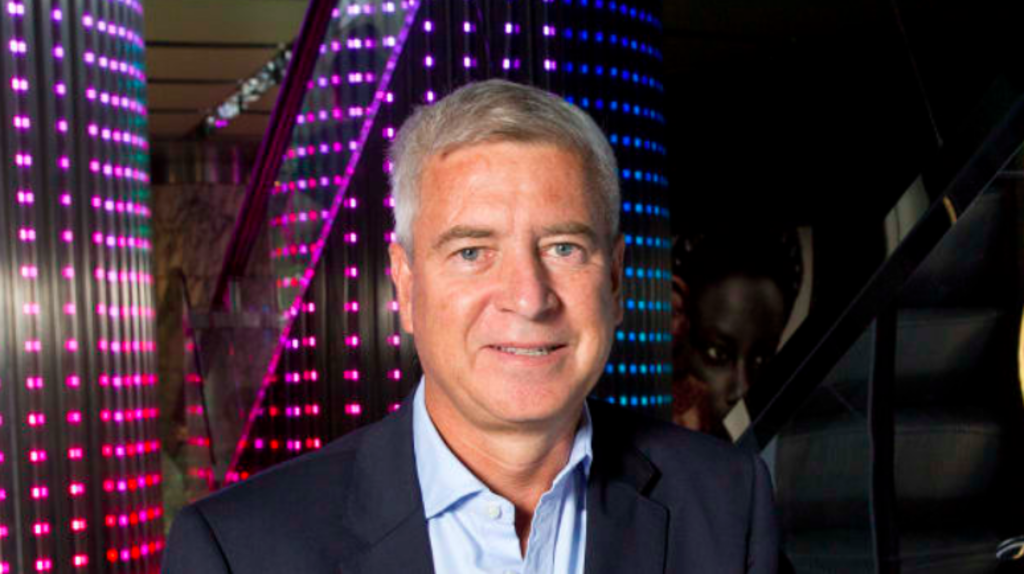
Kick-start migration to support economic recovery, CEOs urge
The economy is bouncing back strongly from a relatively modest contraction, say industry leaders who have urged the government to expedite migration to relieve labour shortages and support the recovery.
The upturn apparent in the retail sector in lockdown-hit states such as Victoria – where foot traffic had recovered to pre-pandemic levels in just five weeks after the end of stay-at-home orders – needed a further lifting of restrictions and a return of global travel, Scentre Group chief executive Peter Allen said.
“I’ve been surprised at how quickly Victoria has rebounded,” he said, adding that allowing the unvaccinated back into non-essential retail should occur as soon as possible. “The sooner we are able to remove that [restriction], the better it is, because everyone has had a chance to be vaccinated.
“We want to see ourselves as one Australia, and I think being able to be inclusive in terms of having everyone being able to come and go to the office or go to our living centres, is really important.”
The main impediment to the economic recovery was staffing shortages, such as those hitting food court operators under Dexus’ Australia Square office tower. There were tenants unable to open as they could not get enough staff, and this showed that the wider economy and the property sector needed the boost that only a resumption of migration could offer, Dexus chief executive Darren Steinberg said.
“All property sectors for the past 50 years, [were] driven by overseas migration, whether it be the population [or] the talent that’s coming in,” Mr Steinberg told The Australian Financial Review Property Summit.
“That migration has underpinned every property sector for 50 years, and it needs to continue not just for real estate, but for the entire Australian economy.”
Hopes that the economy could avoid a severe dip were boosted as Wednesday’s release of September quarter GDP figures showed the economy contracted 1.9 per cent – better than the expected 2.7 per cent GDP fall – and still expanded 3.9 per cent year-on-year.
To ensure the sustainability of this recovery, states and territories needed to stand firm on nationally agreed plans to reopen their borders despite the latest threat of the omicron variant of COVID-19 that has triggered snap border closures globally, said JLL chief executive Stephen Conry.
“It was encouraging last night the Prime Minister, after that national cabinet, said that the governments will hold their nerve and stick to the current arrangements,” Mr Conry said.
“Let’s hope they do. Sadly, ultimately, the premiers report to the Queen, not to the Prime Minister. I wish they reported to the Prime Minister. State by state, it’s different, and that lack of certainty, as everybody knows in business – and in particular our sector – is a real worry.”
Veteran developer and builder Harry Triguboff, who cited rising input costs such as steel in construction as a pressure on property development, said an influx of people was crucial.
“We need immigration now more than ever before,” the Financial Review Rich Lister said.
“Don’t worry what the politicians tell you. That’s what we need. And I’ll give you the reasons why. First of all, we live longer. So we have a lot of old people who can’t work – they’re too old and they cost a lot of money.”
Immigration was also needed to revitalise the country’s CBDs, Charter Hall Group CEO David Harrison said.
“We need to open the borders, we need our foreign students to come back and you know, revitalise both the university campuses but also the cities,” he said.
“We need net migration to cover up the and fill what I call the COVID hangover when government stimulus has gone and the economy’s got to stand on its own two feet.”
War for talent
Business leaders are also facing an adjustment as to how they manage their staff and workplaces. Charter Hall’s Mr Harrison said the war for talent that was prompting bosses to take steps to meet the needs of their employees would even up in time.
“The whole thing that’s been flipped on its head in COVID about that’s what the employees want – I think it’s actually going to get back to a balance between what’s good for the company and what’s good for promoting your talent, rather than ‘I will just do whatever our staff want to do’, which, frankly, a lot of corporates in Australia, sort of let happen in the last 18 months,” he said.
But employers do have to accept that the pandemic has changed the way people work. Mr Harrison’s colleague, Charter Hall office chief executive Carmel Hourigan, said working from home and communicating via technology had levelled the playing field for people with, for example, a hearing difficulty that diminished their ability to participate in a live group conversation.
“There was a lot more engagement in some ways and we need to make sure we keep that,” she said.
Ms Hourigan also said the pandemic experience had given people a greater understanding of the lives of, and pressures faced by, their colleagues.
“Let’s not lose that component of COVID,” she said. “I think people have got more far more empathy and understanding for each other and they’re just giving each other a bit more leeway.”
The economy is battling inflationary bottlenecks that will abate as borders open, Brookfield Real Estate managing partner Sophie Fallman said.
“A lot of it is transitory and it will abate as economies normalise and reopen again and things start going on smoothly, but some of it will stay,” Ms Fallman said.
Mr Steinberg questioned the apparent assumption that cities were risky but suburbs were not.
“It’s crazy, isn’t it, that that everyone’s worried about the virus and they’re worried about coming into the cities but you got to the suburbs and you’re queueing 10 deep for coffee at the coffee shop and everyone’s just getting on with the world. They’re in the pubs,” he said.
“There’s really no difference between the cities and the suburbs, as long as you’re being safe and cautious and you’re vaccinated, and you wear your mask appropriately, and use good hygiene.”











